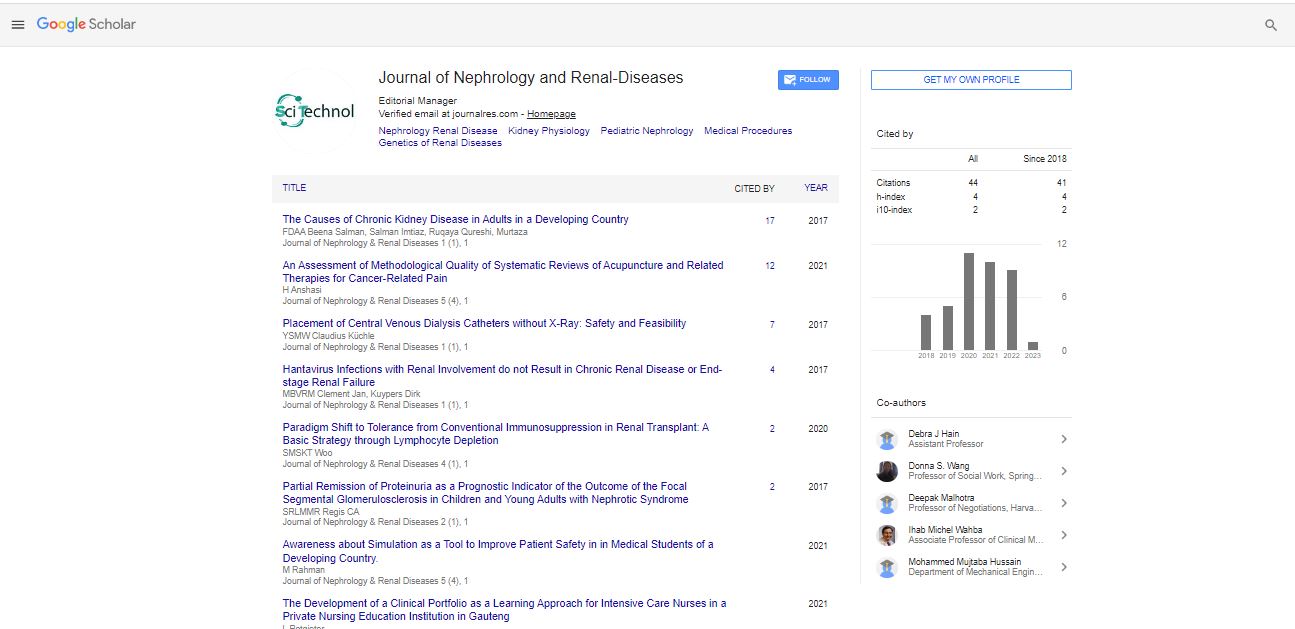Biosimilars: Why are they so widely misunderstood?
Sarfaraz K Niazi
Karyo Biologics, LLC and Pharmaceutical Scientist Inc., USA
: J Nephrol Ren Dis
Abstract
Biological drugs coming off patent can be presented as biosimilars, not as generics because of inherent variability in lot-to-lot variability. Matching similarity is like tracking a moving target requiring a deeper understanding that is often missed. All rejections of biosimilar applications by the FDA have come from lack of sufficient similarity across wide variability. First, there is no phase 1 of phase 3 studies involved; these are clinical pharmacology and additional clinical studies to prove non-inferiority. If a product had to be taken to test into patients, then it is not a very good match with the originator molecule—the idea is to obviate, not encourage studies in patients. Non-inferiority statistical is the only type of testing required, requiring a different experimental design than used in developing new biologics. The science of matching a molecular structure only comes to play in the case of biosimilars—an art and science that is not widely practiced, slowing down entry of biosimilars. A good example of these failures can be seen in the rejections of applications by FDA, from major companies with every conceivable resource in their hands—they just failed to follow a stepwise approach. Providing clinical safety data in patients does not overcome any structural differences.
Biography
Sarfaraz K. Niazi, Ph.D., founding chairman of Karyo Biologics and a former Founding Chairman of Adello Biologics, is a lifetime pioneer of biosimilars having taken the largest number of products to market globally including the USA. Dr. Niazi earned a Bachelor of Science degree in pharmacy from the University of Karachi in 1969. In 1970 he moved to the United States. He obtained his master of science degree in pharmaceutical sciences in 1971 from Washington State University in Pullman, WA, and then moved to Illinois. In 1974, he obtained his doctorate in pharmaceutical sciences from the University of Illinois at Chicago. In 2003 he founded Therapeutic Proteins, Inc. to develop biosimilar versions of biopharmaceuticals as filgrastim, erythropoietin, interferon, and Pegfilgrastim. In March 2012, this company became Therapeutic Proteins International, LLC. The company has proprietary single-use bioreactor systems. Since 2004, he has served as an adjunct professor at the University of Houston College of Pharmacy, and since 2007 as an adjunct professor at the HEJ Research Institute of Chemistry at the University of Karachi. Since 2013, he has been a NUST Visiting Professor at the National University of Sciences and Technology (NUST) in Islamabad, Pakistan. Starting in 2005 he has advised the Pakistani government in regulatory science, intellectual property, and entrepreneurship.
E-mail: niazi@niazi.com
 Spanish
Spanish  Chinese
Chinese  Russian
Russian  German
German  French
French  Japanese
Japanese  Portuguese
Portuguese  Hindi
Hindi 
